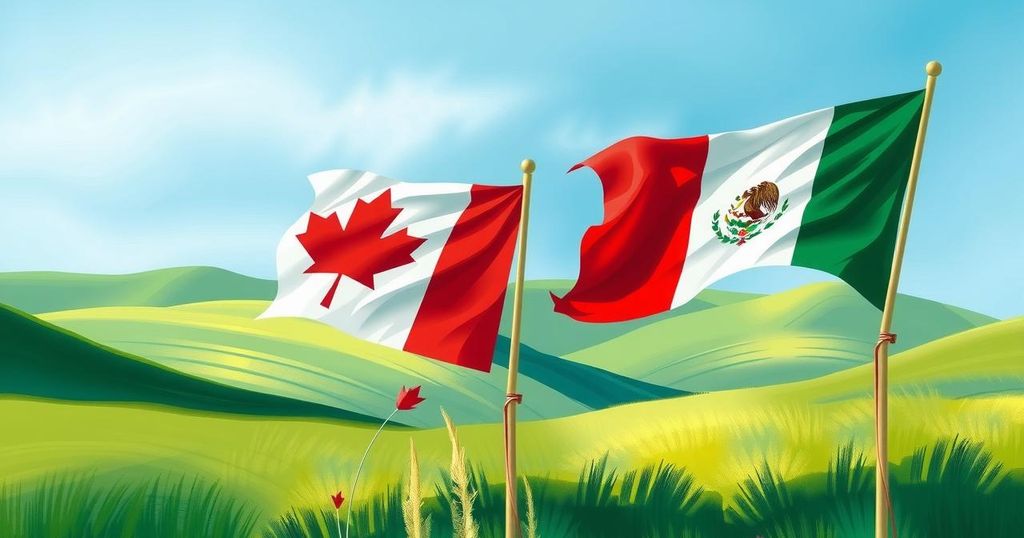World news
AFP, ASIA, BELARUS, BLOOMBERG, CANADA, CLAUDIA SHEINBAUM, CUBA, DONALD TRUMP, EUROPE, EUROPE/ASIA, HURRICANE BERYL, INDIA, LEGAL ISSUES, MARK CARNEY, MEXICO, NATIONAL SECURITY, NORTH AMERICA, NORTH KOREA, PHILIPPINES, POLITICS, RUSSIA, TREASON, TRUMP, U.S. ELECTIONS, UNITED STATES, US, WHITE HOUSE
Amira Khan
0 Comments
Canada and Mexico Exempt from Trump’s April 2 Reciprocal Tariffs
On April 2, 2024, President Trump announced reciprocal tariffs affecting multiple nations. Canada and Mexico were exempt from these tariffs, largely due to existing duties already in place. While they will avoid immediate impacts, both countries still face challenges from pre-existing tariffs and must prepare for negotiations moving forward.
On April 2, President Donald Trump announced reciprocal tariffs aimed at a broad range of countries, sparking significant concern from trade partners. Canada and Mexico were notably exempt from this round of tariffs, which imposed charges ranging from 10 to 45 percent, allowing these nations to avoid the immediate economic repercussions that other countries would face under the new regulations. Trump’s decision came amidst strong rhetoric regarding the perceived exploitation of the U.S. by foreign nations.
Despite their exemption from these new tariffs, Canada and Mexico still contend with pre-existing tariffs on their goods. Specifically, these nations are currently subjected to 25 percent tariffs on certain imports, along with a lower rate of 10 percent applied to Canadian energy and potash. Moreover, automotive products will incur new levies, further complicating trade dynamics.
The exemption of Canadian and Mexican goods from the April 2 tariffs can be traced to existing levies that remain in effect, as noted by officials. Goods entering the United States under the US-Mexico-Canada Agreement will also retain their exemption, providing a degree of protection against the recent tariff increases introduced by the Trump administration. However, any future agreements regarding tariffs may still be subject to negotiation within the framework of the newly implemented baseline rates.
In the face of these developments, Canadian Prime Minister Mark Carney stated, “We are going to fight these tariffs with counter-measures. We are going to protect our workers,” indicating a proactive approach to offset any negative impacts resulting from ongoing tariffs. Meanwhile, Mexican President Claudia Sheinbaum is expected to present an official response during her upcoming press conference.
Notably, Russia was also absent from Trump’s list of countries affected by the new tariffs. Countries such as Cuba, Belarus, and North Korea currently face sanctions, thus exempting them from the tariffs as well. The President’s unilateral tariff decisions cover a wide array of nations with varying rates, reflecting the administration’s approach to international trade amidst ongoing tensions.
In conclusion, Canada and Mexico successfully avoided the new reciprocal tariffs announced by President Trump due to existing tariffs that remain effective. While they are not currently subjected to these new rates, they must still navigate a complex landscape of existing duties and the potential for future negotiations. Both Canada and Mexico’s leaders are prepared to defend their interests, emphasizing a commitment to counter-measures and protections for their respective workers.
Original Source: www.hindustantimes.com




Post Comment